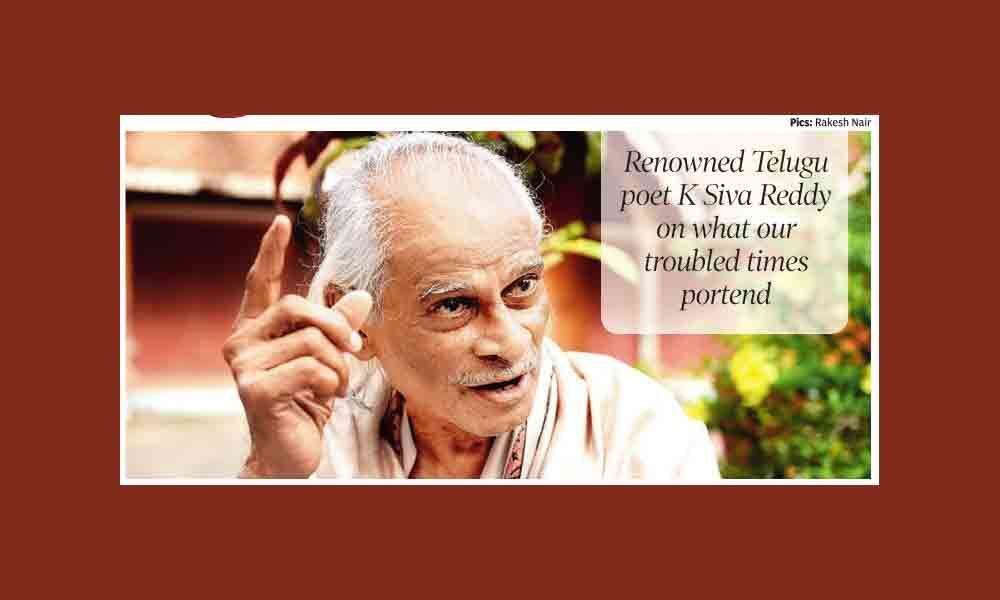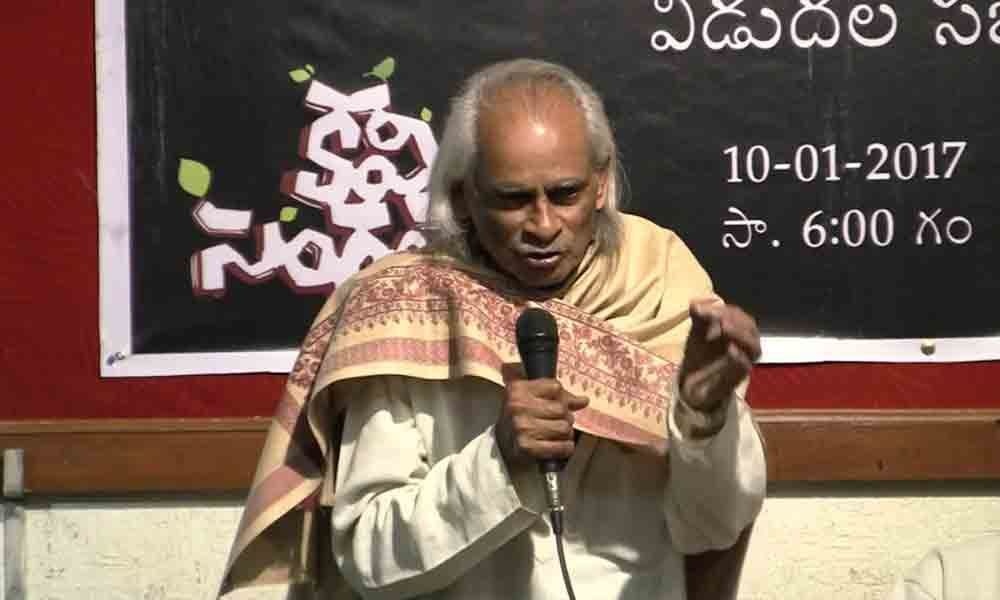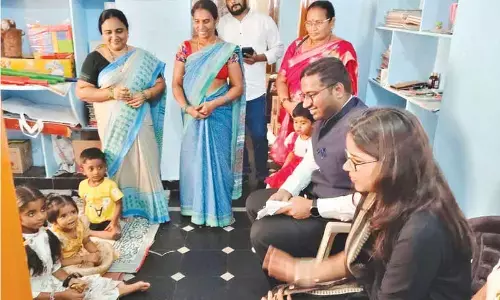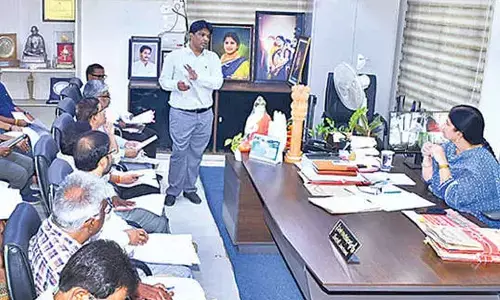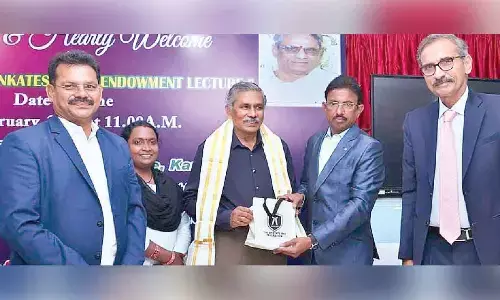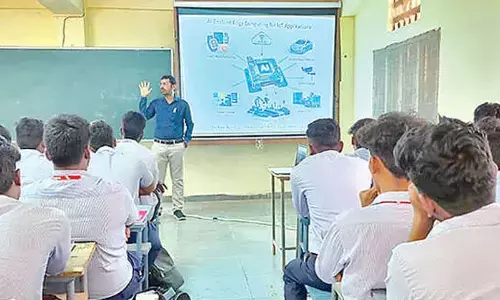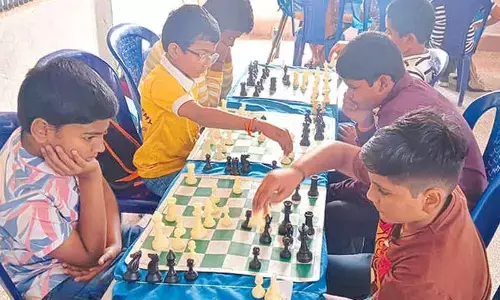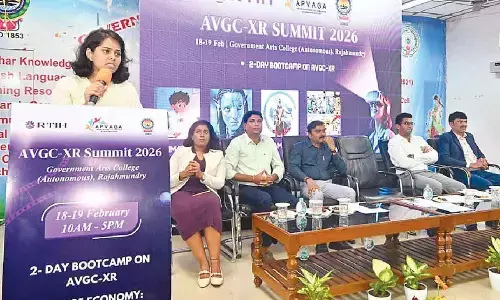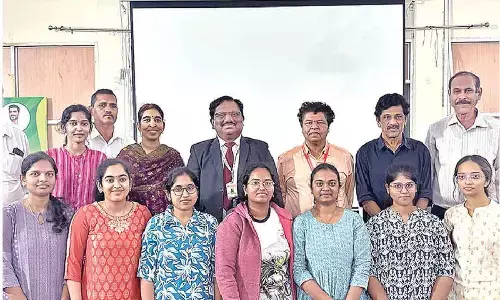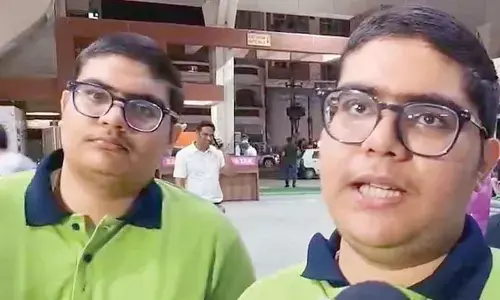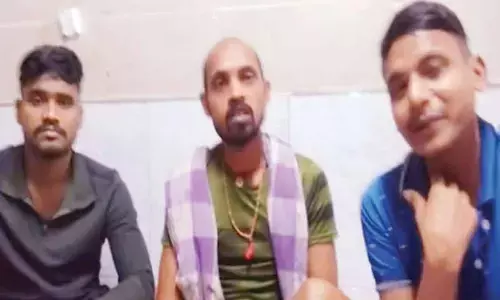The master of verses!
Sahitya Akademi award-winning Telugu poet K Siva Reddy has been recently honoured with Saraswati Samman Award by the Birla Foundation for outstanding work in Indian poetry. A towering figure among contemporary Telugu poets, his works have crossed boundaries and reached out to a cross-section of readers…
The above poem defining the role of a poet is but one example of the many beautiful verses in freestyle emerging from the depths of emotional fervour of one whose life's journey is entwined with poetry.
K Siva Reddy, the prolific poet whose enormous body of work encompasses 20 volumes of poetry declares confidently that a completed poem no longer belongs to the poet. "When a poem is finished it belongs entirely to the reader.
It is for him to take what he wants from the many complexities and layers that lie within the words and emotions strung together by him. The reader has his own insights, internalising and owning what he interprets," he says.
A towering figure among contemporary Telugu poets, the recipient of the Central Sahitya Akademi award for his outstanding compilation of poems titled 'Mohana! Oh, Mohana!' has a string of prestigious awards to his credit.
The Saraswati Samman award of the Birla Foundation for outstanding work in Indian poetry is the latest feather in his cap. ''This award is truly humbling and a source of great happiness as it was selected by 13 eminent jury members who looked at works in 24 languages across the country.
It is an endorsement that my work has crossed boundaries and reached out to larger cross-sections of readers," he says of his award.
Hailing from a lower-middle-class agricultural family in Karmurivaripalem in Tenali, Siva Reddy spent his childhood working on his farm and doing household chores having lost his mother when he was barely six years old.
Inspired to write poetry while he was in high school, he pursued his degree studying both English and Telugu literature. Writing metrical poems initially and studying classical literature proved to be a blessing when he took to free verse poetry in Hyderabad, where he settled down in a teaching job. Teaching English literature to students at Vivek Vardhini College, he retired after serving as the Principal of the college.
His love for poetry is only rivalled by his love for teaching and the 76-year-old continues to teach students at a private degree college in the city three days a week. Writing free verse, however, is not easy reckons the poet, who cautions that the freedom experienced in not adhering to the metre is deceptive.
Precision, rhythm and poetic idiom all make free verse a seemingly simple yet complex work, he says in his compilation 'Pakkaku Othagillithe'. "Writing poetry is like living with a sword and requires a heightened level of awareness.
One has to maintain a fine balance to achieve success as poetry is a vibrant and responsive interaction between the poet and the outer world as well as a struggle between contradictions within himself," he elaborates.
Studying Marxism in the late sixties in Hyderabad, abounding in various movements like the Digambara Movement and the 'Virasam' or Revolutionary Writer's Movement, Siva Reddy re-discovered society through the tenets of Marxism.
The 'Communist Manifesto', historical and dialectical materialism and class contradictions that he studied during this period opened up new vistas imbuing his work with a new political vision and wisdom.
The man credited with releasing revolutionary poetry from its stereotyping and monotonous poetising says his life can be divided into two stages in terms of perception as 'Before Communism' and after.
"Political wisdom and vision are necessary for a poet and political content needs to be captured by poetry. There is nothing called pure poetry when everything is being defined and judged by politics. People's movements and struggles are a part of the journey," Siva Reddy reiterates.
Having translated the works of African and European poets into Telugu Siva Reddy admits that poets like Pablo Neruda, Federico Garcia Lorca and Yannis Ritsos made a lasting impression on him.
Their influence, as well as that of Indian poets like Kunwar Narayan and Kedarnath Singh, enriched his own poetry making it multi-layered with relation to shape, style and form.
How has his work changed during his six decades as a poet? "My work has evolved, matured and mellowed over time. From 'Raktham Suryudu', which was an angry outburst written in my initial phase to 'Konchem Swechhaga', which is a critique against the repression by the Modi government, there is a perceptible change with the varied experiences over time," he explains.
A new volume of poetry to be released in a couple of months is a major pre-occupation for the poet who says 'vasthu vaividhyam' (varied subjects) is an important aspect of his poetry and his subjects are everywhere.
"A little bird, a cup of coffee, my grandson, a traffic jam or a wintry evening- are all subjects and my poet's eye gleans ever new perspectives on nature, living beings and even inanimate and intangible things," he adds.
Adding depth to poetry is pain which is like an undercurrent and there can be no poetry without pain according to him. Diminishing human relations in a post-globalised world reflect this pain more poignantly finding expression in his works.
As he grapples with the changing world K Siva Reddy is confident of one unchanging fact. "Poetry is immortal. It will be there as long as man exists".


